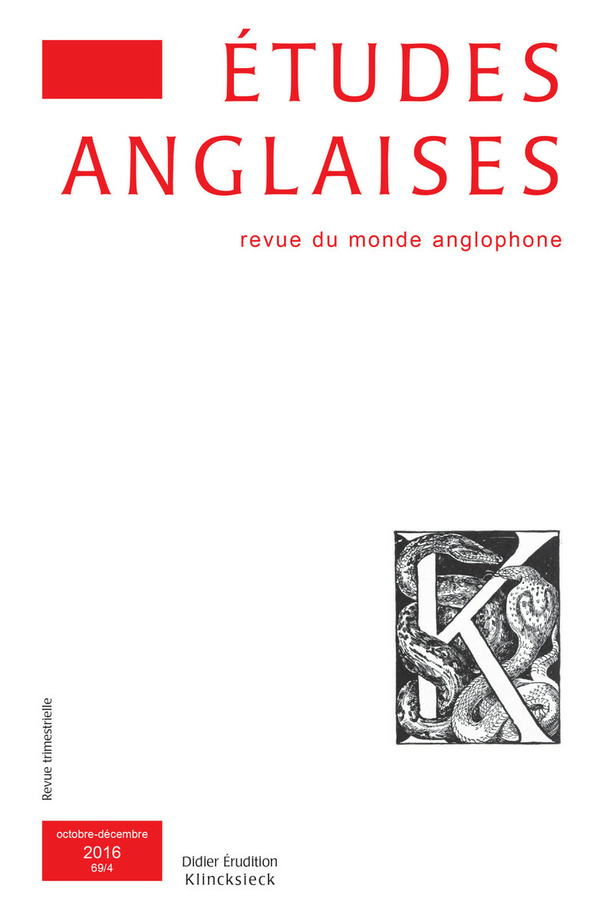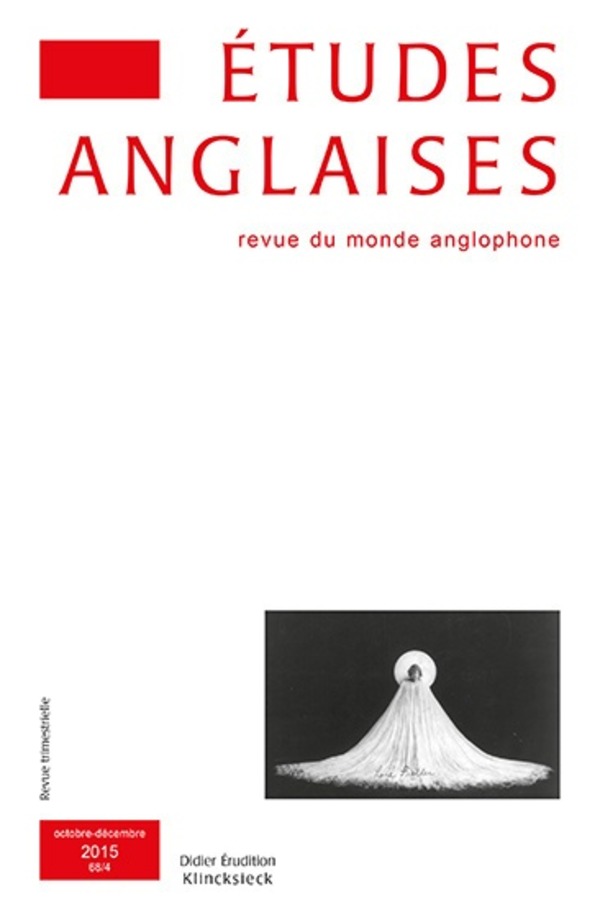Études anglaises
COMITÉ DE RÉDACTION
Isabelle GADOIN, rédactrice en chef
Vanessa GUIGNERY, rédactrice en chef associée
Xavier KALCK, rédacteur en chef associé
Laurent FOLLIOT, rédacteur et secrétaire (Comptes Rendus et Notes de lecture)
Fondée en 1937 pour prendre la suite de la Revue anglo-américaine, la revue Études anglaises, qui jouit d’une très vaste reconnaissance, vise à diffuser la recherche française d’excellence et à mettre les anglicistes français en dialogue avec la communauté internationale. Elle publie les recherches d’anglicistes français et étrangers en littérature, en linguistique et en civilisation, et couvre le domaine anglophone sous tous ses aspects: anglais, américain, postcolonial, littérature mondiale, etc. La revue paraît à raison de quatre numéros annuels de 128 pages chacun, dont des numéros spéciaux sous la responsabilité d'éditeurs invités français ou étrangers, et un numéro traditionnellement consacré aux questions au programme de l’agrégation. Tous les articles sont évalués de façon anonyme, et accessibles sur le site cairn.info quelques mois après la publication imprimée. La rubrique « Comptes rendus » est consacrée à des recensions de publications récentes significatives dans le domaine de l’anglistique.
Les propositions d'articles ou de comptes rendus, ainsi que les demandes concernant la feuille de style de la revue, peuvent être envoyées directement au secrétaire de rédaction, Laurent Folliot : lfolliot79@gmail.com
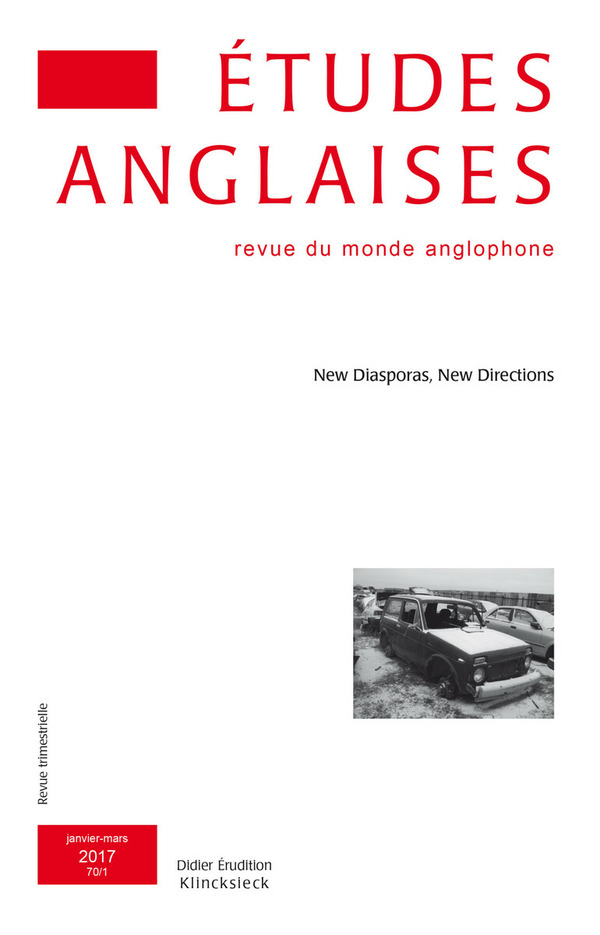
Études anglaises - N°1/2017
New Diasporas, New Directions
Guest editor: John McLeod John McLEOD : Preface: New Diasporas, New Directions ARTICLES Henghameh SAROUKHANI : Vehicular Cosmopolitanism: The Car in Bernardine Evaristo's Soul TouristsJohn McLEOD : Against Biocentrism: Blood, Adoption, and Diasporic WritingAmy RUSHTON : No Place like Home: the Anxiety of Return in Taiye Selasi's Ghana Must Go...
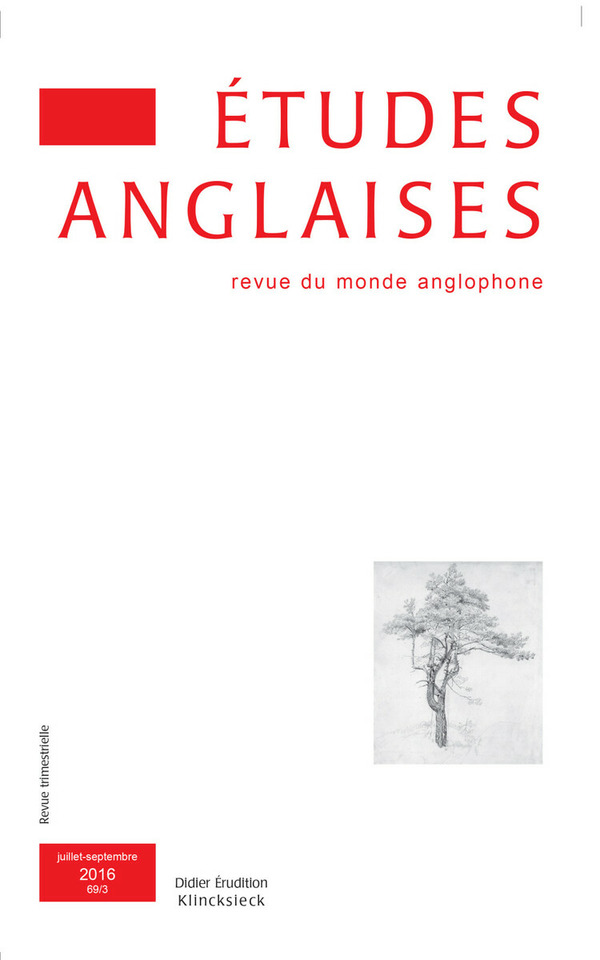
Études anglaises - N°3/2016
Articles KERRY-JANE WALLART Decontextualizing Caryl Phillips's Crossing the River NATHALIE COCHOY L'accent mis ailleurs : My Ántonia, de Willa Cather JEAN-FRANÇOIS BAILLON Of Mirrors, Paintings and Windows: Spectatorship in Ang Lee’s Sense and Sensibility (1995) STÉPHANE PORION Reassessing a Turbulent Decade: the Historiography of 1970s Britain in Crisis VANESSA GUIGNERY...
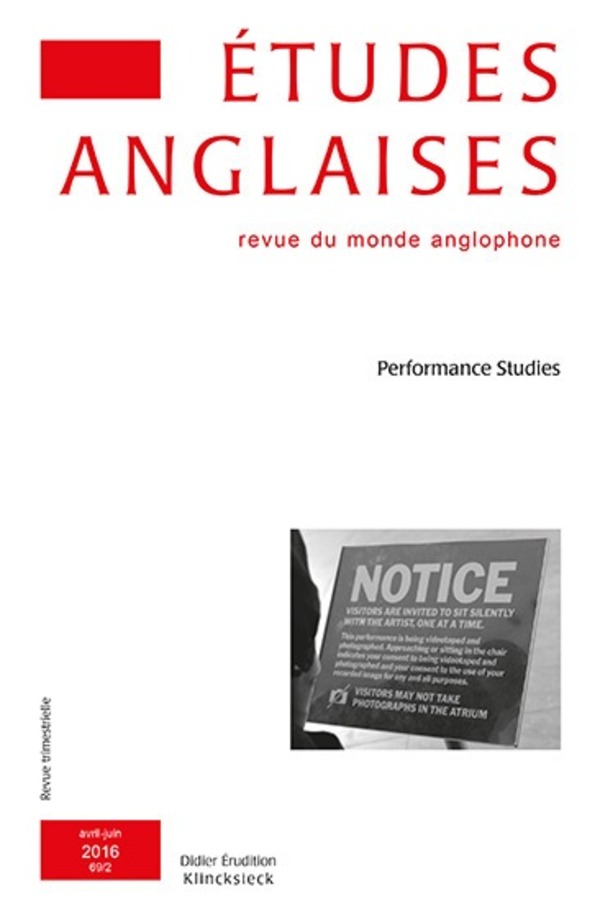
Études anglaises - N°2/2016
Performance studies
Articles VIRGINIE MAGNATDecolonizing Performance Research DIANA TAYLORSaving the "Live"? Re-performance and Intangible Cultural Heritage SAINI MANNINEN"In theatre, as in love, the subject is disappearance"; On Absence and Archival Logic in Performance XAVIER LEMOINEPerforming Black Queerness in the U.S. South: Ethnographic Performance and the Blurring of Presence in E.P. Johnson's Sweet...
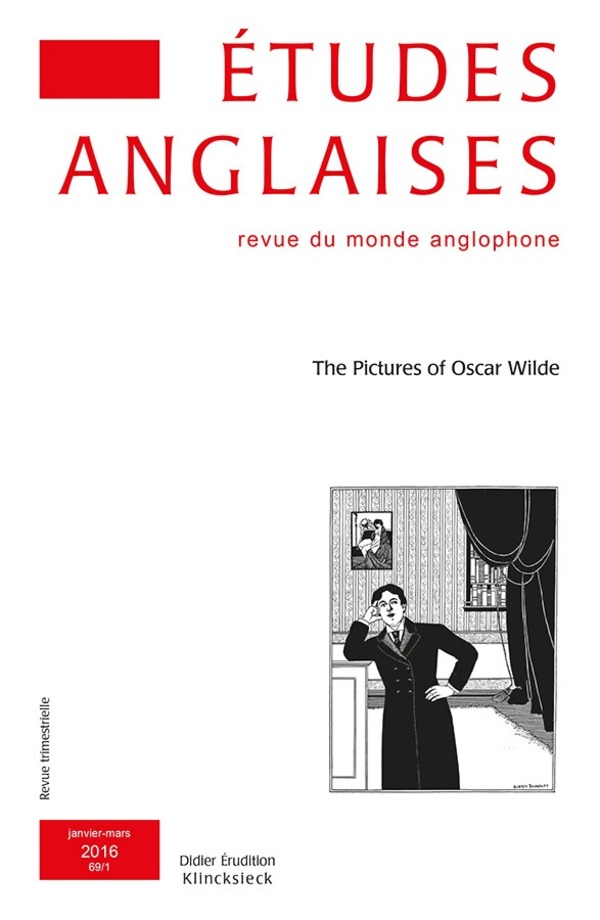
Études anglaises - N°1/2016
The Pictures of Oscar Wilde
Joseph BRISTOW : Oscar Wilde, Ronald Gower, and the Shakespeare Monument Le mercredi 10 octobre 1888, Oscar Wilde figurait parmi les orateurs qui prononcèrent l'éloge de Sir Ronald Gower (1845-1916) lors de l'inauguration de l'imposant monument, érigé en l'honneur de Shakespeare à Stratford-upon-Avon et conçu par Gower. Cet événement, moment...
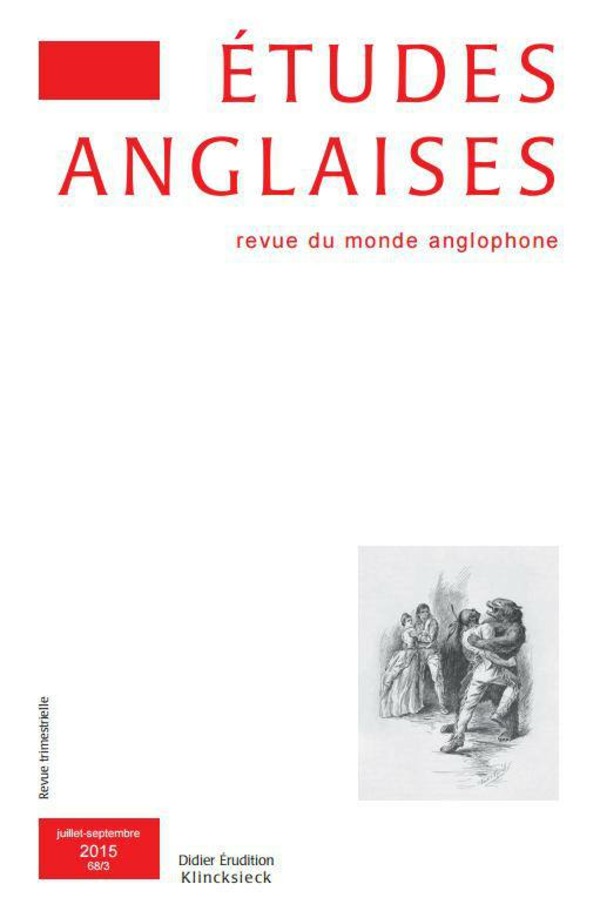
Études anglaises - N°3/2015
Articles MICHEL IMBERTLe Dernier des Mohicans ou le ré-enchantement des signes YANNICKE CHUPINFalling Man, ou les vertus de la lecture spiralée de l'événement historique GUYONNE LEDUCLetters and Letter-Writing in Jane Austen's Sense and Sensibility (1811) ÉLISE MIGNOTIntegrated relative clauses with indefinite antecedents: sub-categorization or joint categorization FRÉDÉRIC HERRMANNThe Glorious Revolution...
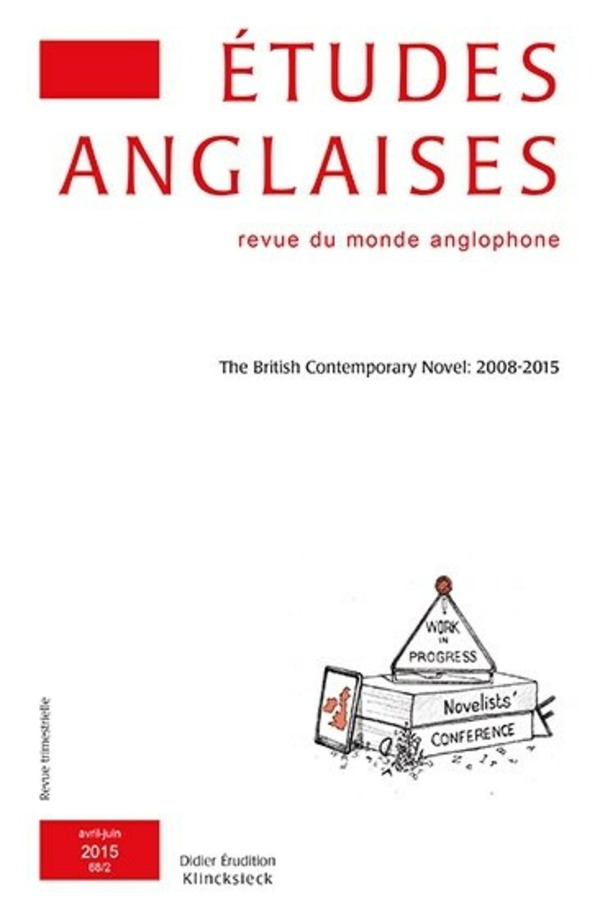
Études anglaises - N°2/2015
The British Contemporary Novel: 2008-2015
Catherine BERNARD Writing Capital, or, John Lanchester's Debt to Realism John Lanchester's fourth novel Capital (2012) offers a scathing, satirical denun- ciation of the excesses of capitalism, commodity fetishism and globalisation. The choral structure of the novel also allows the text to function as a world-novel, embracing as it does...
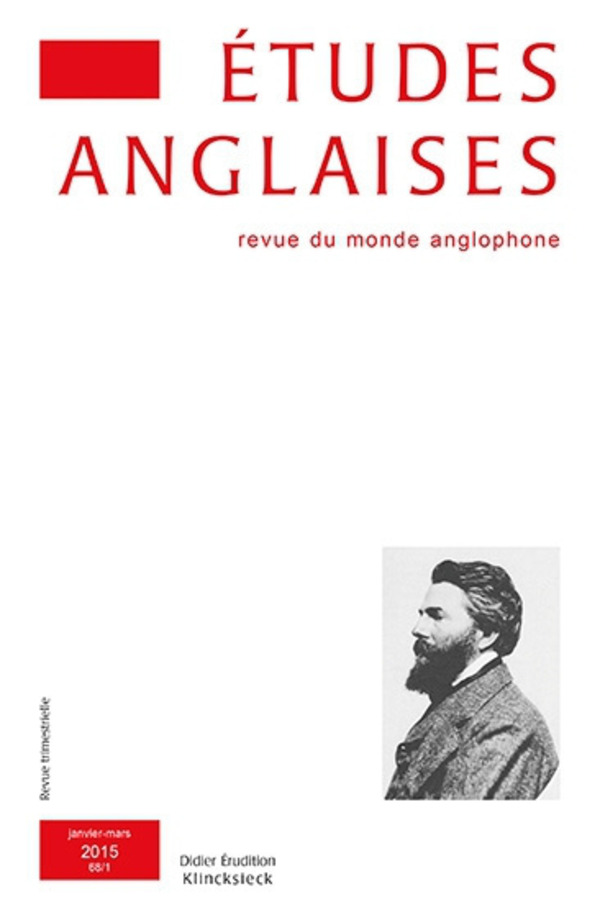
Études anglaises - N°1/2015
Agnès DERAIL-IMBERTÉros et Arès : les enfants de la guerre dans Billy Budd, Sailor de Melville Cette étude se propose de lire Billy Budd, Sailor comme une fable juridique qui dramatise, dans un double contexte de guerre et de mutinerie, le conflit entre la violence d'une innocence exceptionnelle (Billy) et...
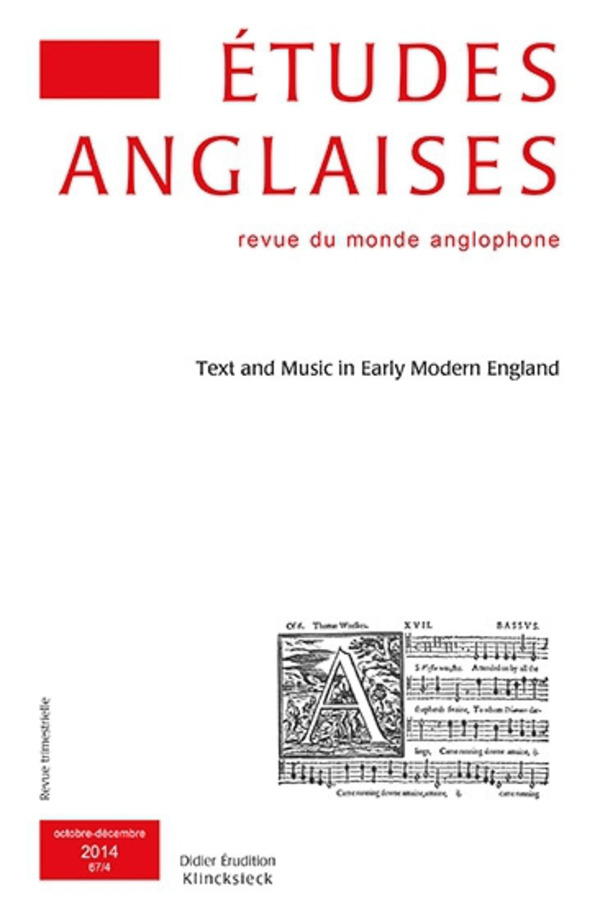
Études anglaises - N°4/2014
Text and Music in Early Modern England
Natalie ROULON Music and Gender in All's Well That Ends WellAll’s Well That Ends Well may not be the most musical of Shakespeare’s works, but the music performed or referred to in the play is important in that it contributes to constructing the strict gender divide which prevailed in the...
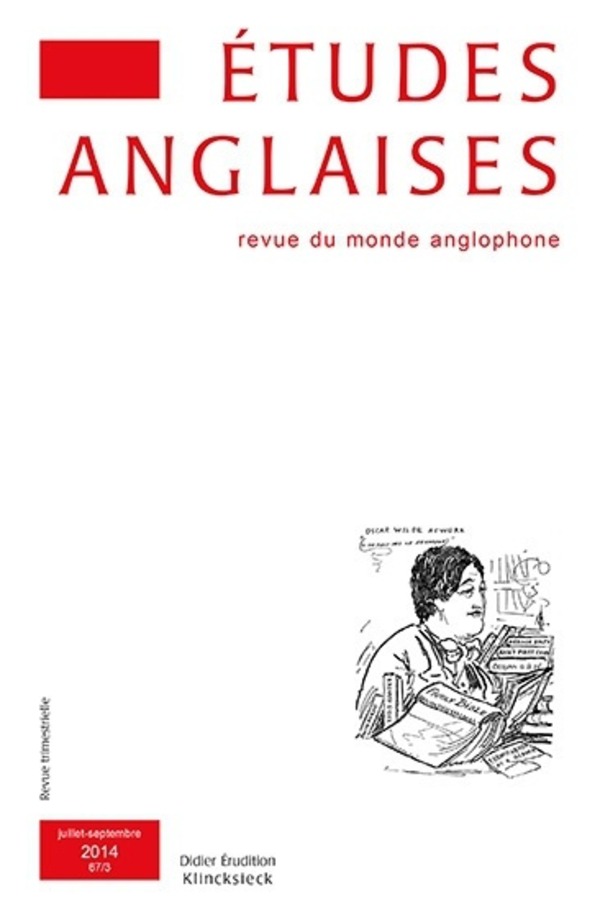
Études anglaises - N°3/2014
Marie-Françoise ALAMICHEL : "This wyde world, which that men seye is round": Movement and Meaning in The Franklin's TaleGisèle VENET : More “flies in amber”? or, of Topicalities, Dictionaries and Poetics in Love's Labour's LostAlexandra POULAIN : “False impression[s]”: Writing in The Importance of Being Earnest Marta DVORAK : “the...
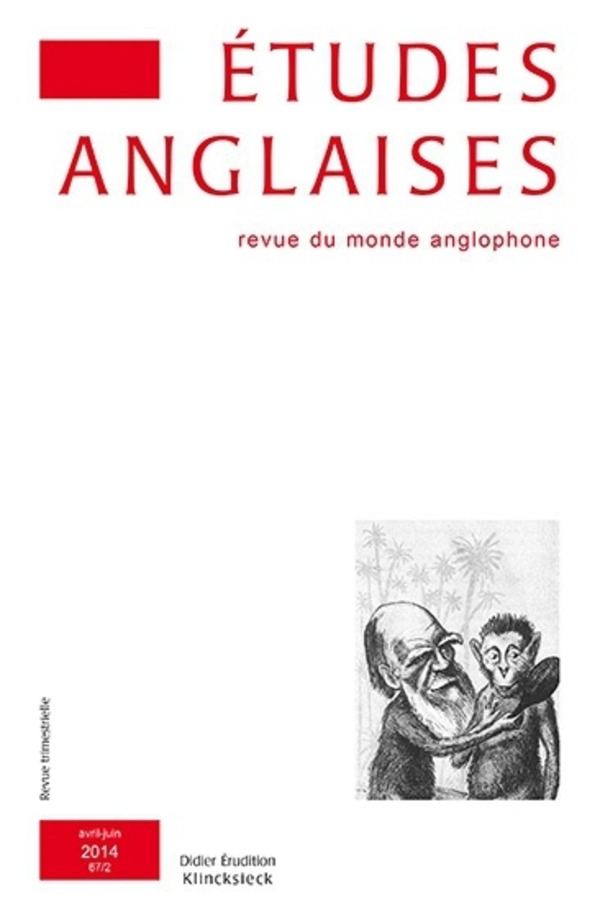
Études anglaises - N°2/2014
Claire BOULARD-JOUSLIN : The making of public opinion in The Free-Thinker (1718-1721): from theory to practice Jean-Michel YVARD : « Oh you Materialist! » : oser publier On the Origin of Species Jason ALLEN : Le corps créole, fonction de la relation dans Drums and Colours de Derek Walcott Sandrine...
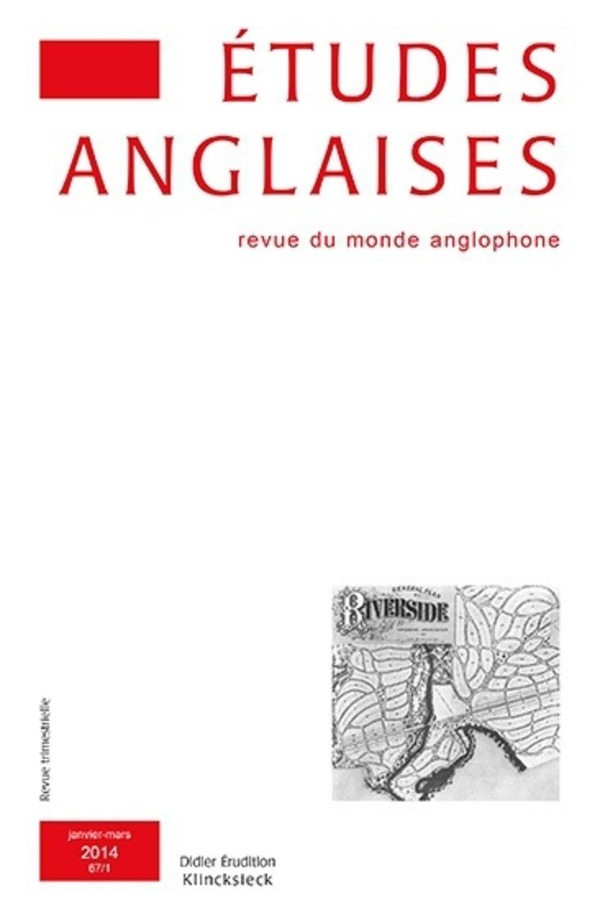
Études anglaises - N°1/2014
Claire VIAL : Clothing the debate: textiles, text-isles and the economy of gift-giving in four Middle English Breton lays Textiles, both as clothes and elements of the codified knightly costume, play a major structuring role in the Breton lays. Whether embodied in recurring poetic motives or staged in descriptive pauses,...
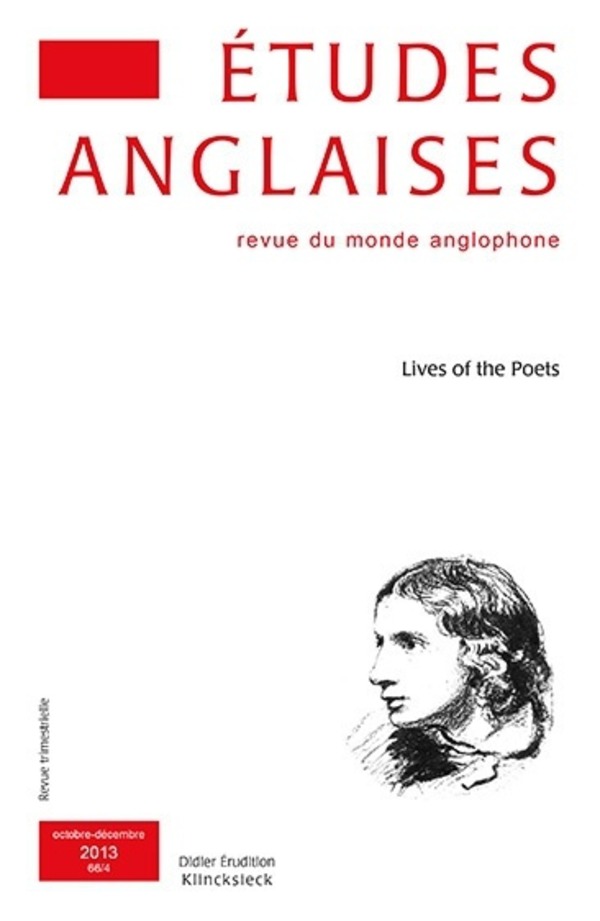
Études anglaises - N°4/2013
Lives of the Poets
Jeremy ELPRIN"[T]he Life which was, as it were, already written": biographizing epistolary Keats If John Keats suspected he would be “among the English Poets” after his death, could he have imagined the multitude of biographical afterlives which would emerge from, and remain enveloped in, his private correspondence? In examining the...
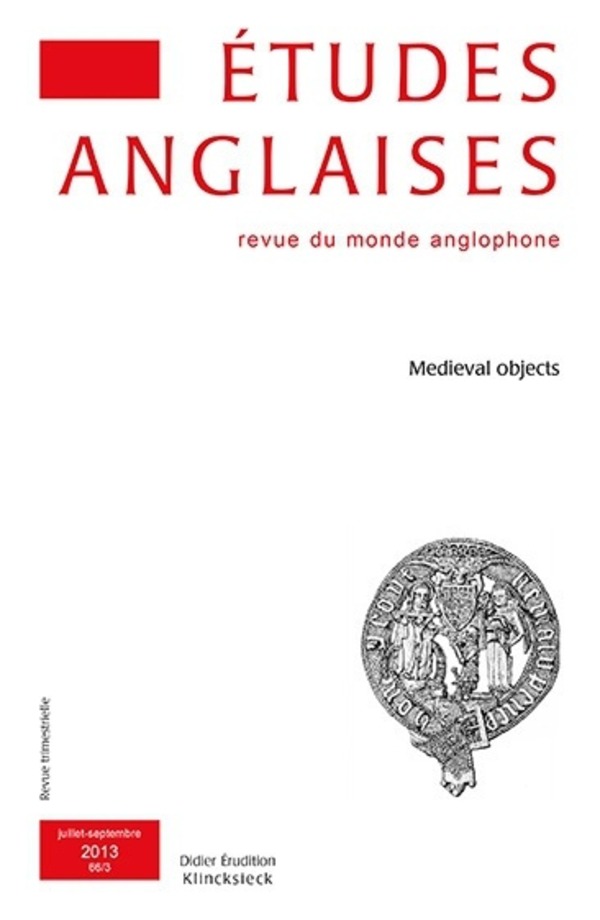
Études anglaises - N°3/2013
Medieval objects
Stephanie A. Viereck Gibbs KAMATH : A cruel spoon in context: cutlery and conviviality in late medieval literature Indebted to Derek Brewer's "honor-group" theory, this essay explores how ideas of community and individuality found expression through depictions of spoon use in late medieval English and French texts. Guillaume de Digulleville's...

